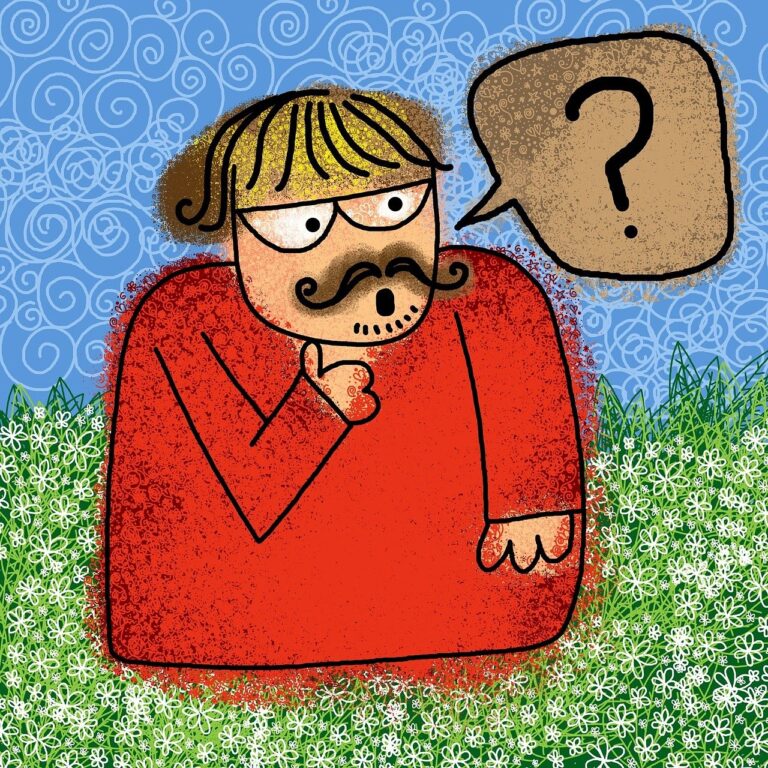How Do You Say ‘Good Morning, Sunshine’ in Spanish: Phrases & Tips
Ever found yourself wanting to greet someone special with a little extra warmth and sunshine? Imagine waking up to a beautiful sunrise, the golden rays spilling into your room, and you just know today’s going to be great. You grab your phone, ready to send a heartfelt message, but then you think, “How do I say ‘good morning sunshine’ in Spanish?”
You’re not alone. Many of us want to add that special touch to our greetings, especially when it’s in a beautiful language like Spanish. Saying “buenos días, sol” or “buenos días, mi sol” can turn a simple morning greeting into a delightful expression of affection. It’s like wrapping your words in a warm hug.
Understanding “Good Morning Sunshine” in Spanish Context
Want to greet someone special with an affectionate “good morning, sunshine” in Spanish? Let’s explore literal translations and cultural nuances, ensuring your greeting resonates authentically.
Literal Translations vs. Cultural Equivalents
Translating “good morning, sunshine” literally offers direct yet heartfelt phrases. You could say “buenos días, luz de sol” or “buenos días, mi sol”. They’re straightforward and convey warmth.
But, cultural equivalents often capture deeper, contextual meanings. In Mexican Spanish, for instance, “buenos días florecita” is a charming greeting for a man, while “buenos días, ya se fue Andres?” is used sarcastically towards a grumpy woman. These phrases enhance emotional connection, resonating within cultural contexts.
Regional Variations Across Spanish-Speaking Countries
Spanish varies significantly across regions, each adding unique flavor to greetings.
Popular Phrases in Different Countries
Here’s a quick comparison:
Country | Popular Phrase |
|---|---|
Mexico | Buenos días, florecita |
Spain | Buenos días, sol |
Chile | Buenos días, cielo |
Honduras | Buenos días, mi vida |
Cultural Nuances to Consider
Understanding cultural nuances enriches the greeting experience. For instance, while “buenos días, luz de sol” sounds sweet, phrases with personal touches like “buenos días, mi cielo” or “buenos días, mi amor” might feel more genuine. Think about the relationship dynamics and how formality plays a role.
Why should you care? Simple: using culturally relevant phrases shows respect and understanding, fostering deeper connections. So next time you greet someone, remember these insights to light up their morning authentically.
Top Spanish Phrases for “Good Morning Sunshine”

Greeting someone with warmth and affection begins the day on a positive note. Learning how to say “good morning, sunshine” in Spanish lets you add a special touch to your morning hellos. Here are some top phrases to express this sentiment in Spanish.
“Buenos días, sol”: The Most Common Translation
Buenos días, sol is the most straightforward and friendly way to say “good morning, sunshine” in Spanish. It’s perfect for casual and affectionate greetings.
Pronunciation Guide for “Buenos días, sol”
To pronounce “Buenos días, sol”, say “BWEH-nohs DEE-ahs SOHL.” Practice it a few times to get comfortable.
When and How to Use This Phrase Effectively
Use Buenos días, sol in informal settings. It works great with friends, family, or even a partner. Imagine you’re starting the day with a loved one; this phrase sends warmth and affection their way, setting a positive tone for the rest of the day.
“Buenos días, rayito de sol”: A More Affectionate Version
For an extra touch of warmth, try Buenos días, rayito de sol, which means “good morning, little sunbeam.” This affectionate phrase adds a tender and loving note to your greeting.
Pronunciation Guide for “Buenos días, rayito de sol”
To pronounce “Buenos días, rayito de sol”, say “BWEH-nohs DEE-ahs rah-EE-toh deh SOHL.” The phrase might be a bit longer, but with practice, it becomes a heartwarming greeting.
When and How to Use This Phrase Effectively
Buenos días, rayito de sol fits perfectly when you want to add a bit of sweetness to your morning greetings. Use it with children, close family members, or your significant other. It’s like sending a verbal hug, making the other person feel cherished.
Other Endearing Spanish Morning Greetings to Brighten Your Day
Exploring more phrases enriches your interactions. Here are additional endearing Spanish morning greetings:
Phrase | Translation | Pronunciation Guide | Best Used For |
|---|---|---|---|
Buenos días, sol | Good morning, sunshine | BWEH-nohs DEE-ahs SOHL | Informal settings with friends or family |
Buenos días, rayito de sol | Good morning, little sunbeam | BWEH-nohs DEE-ahs rah-EE-toh deh SOHL | Children, close family, or partners |
Buenos días, mi amor | Good morning, my love | BWEH-nohs DEE-ahs mee ah-MOHR | Romantic partners |
Buenos días, mi vida | Good morning, my life | BWEH-nohs DEE-ahs mee VEE-dah | Partners or family |
Buenos días, cariño | Good morning, darling | BWEH-nohs DEE-ahs kah-REE-nyoh | Loved ones |
Using these phrases brightens mornings and fosters connections. They show thoughtfulness and a desire to make someone’s day better. So, why not start tomorrow with a heartfelt Buenos días, sol?
Cultural Etiquette: Using “Good Morning Sunshine” in Spanish
Transforming a simple greeting into a heartfelt moment can brighten anyone’s day. But, understanding the cultural context of using “Good morning, sunshine” in Spanish ensures your message hits the right note.
Appropriate Settings for Using Affectionate Greetings
“Buenos días, luz de sol” translates to “Good morning, sunshine” but it’s best reserved for informal settings. Picture a cozy morning at home or a cheerful reunion with friends. This phrase works wonderfully with family members, close friends, and younger individuals. It’s not suited for formal or professional environments, where a simple “Buenos días” is more appropriate.
Gender Considerations in Spanish Terms of Endearment
Gender can influence how endearments are used in Spanish. For example, if greeting a man affectionately, you might say “Buenos días, florecita” (good morning, little flower). Sounds whimsical, right? For a woman, particularly in Mexico, there’s “Buenos días, ya se fue Andrés?” This playful, sarcastic phrase asks if Andrés has left, implying a playful dig at morning grumpiness.
Age and Relationship Factors: Who to Greet as “Sunshine”
Consider age and your relationship with the person when using affectionate terms. Close friends and family, especially younger individuals, would appreciate “Good morning, sunshine.” Using this with older persons or in formal relationships may come off as too familiar.
Here’s a table summarizing appropriate usage:
Situation | Phrase | When to Use |
|---|---|---|
Informal & Family | “Buenos días, luz de sol” | With close relations, kids, during casual moments |
Informal, Male | “Buenos días, florecita” | With close male friends or family |
Informal, Female (Mex) | “Buenos días, ya se fue Andrés?” | Playfully with close female friends/family |
General Formal | “Buenos días” | Formal settings, professional environments |
Using these phrases thoughtfully can illuminate someone’s morning and strengthen your bonds.
Expanding Your Spanish Morning Vocabulary

Want to add some variety to your morning greetings? Whether you’re speaking to friends, family, or colleagues, Spanish offers a rich selection of expressions to start the day on a positive note.
Beyond “Good Morning Sunshine”: Alternative Greetings
Spice up your mornings with these refreshing alternatives:
Formal Spanish Morning Greetings for Professional Settings
When in a professional environment, formality matters. Try these polished phrases:
Informal and Colloquial Expressions for Friends and Family
Morning greetings get cozy and fun among friends and family. Here’s how:
Spanish Terms of Endearment to Pair with “Good Morning”
Sprinkle in some affection with these heartwarming terms:
Family-Specific Nicknames in Spanish
Create special bonds using family-focused nicknames:
Romantic and Friendly Spanish Pet Names
Add a layer of intimacy with romantic or playful nicknames:
Here’s a handy table to summarize:
Context | Greeting | Translation |
|---|---|---|
Alternative greetings | ¡Buenos! | Good morning (informal) |
¡Buen día! | Good day | |
Buenos días a todos | Good morning to all | |
Buenos días, un placer conocerte | Good morning, a pleasure to meet you | |
Professional settings | Buenos días, señora | Good morning, madam |
Buenos días, señorita | Good morning, miss | |
Buenos días, señor | Good morning, sir | |
Buenos días, jovencita | Good morning, young lady | |
Buenos días, jovencito | Good morning, young man | |
Friends and family | ¡Hola, tío! | Hi, dude |
¿Cómo andas? | How’s it going? | |
Buenos días, florecita | Good morning, little flower |
Make each greeting count by tapping into these varied expressions. Your mornings are bound to be brighter and more engaging.
Mastering “Good Morning Sunshine” in Spanish Conversations
Ever wanted to greet someone special with warmth and authenticity in Spanish? Saying “Buenos días, rayito de sol” does just that. This phrase softly conveys the affection and cheerfulness you want to wish them. But there’s more to it than just words.
Matching Tone and Context in Spanish Greetings
Context and tone are everything in Spanish greetings. If you’re trying to match a similar mood or win someone over, use “Buenos días, mi sol”. Want something a bit more playful, perhaps sarcastic for a grumpy friend? Try “Buenos días, florecita” for a man or “Buenos días, ya se fue andres?” for a woman. Matching tone to the situation ensures your greeting hits the right note, making it just the right mix of fun and sincere.
Body Language and Gestures to Accompany Your “Buenos Días”
Did you know nonverbal communication is big in Spanish culture? When you say “Hola” or “Adiós”, adding a gesture makes it even more personable. For instance, shake hands from left to right and back at least a couple of times while smiling warmly. These small actions speak volumes and can turn a simple greeting into a memorable moment.
Common Mistakes to Avoid When Using Affectionate Spanish Greetings
Mixing up the tone or context can turn your sweet greeting into an awkward encounter. Avoid using “rayito de sol” in professional settings; it’s too intimate. Also, mispronouncing words can dilute the message you’re trying to convey. Practice saying these greetings and get feedback if possible. And remember, not all Spanish-speaking cultures use the same phrases the same way. What works in Spain might not work in Mexico.
Here’s a quick guide to help you navigate affectionate greetings:
Phrase | Description | Use Case |
|---|---|---|
Buenos días, rayito de sol | Affectionate morning greeting, translates to “Good morning, sunshine” | Close relationships, sweet and warm |
Buenos días, mi sol | Another affectionate variant, means “Good morning, my sunshine” | Romantic relationships, very intimate |
Buenos días, florecita | Playful, slightly sarcastic greeting suggesting “little flower” | Friends, adds a touch of humor and playfulness |
Buenos días, ya se fue andres? | Informal way to playfully greet a woman, asking if she’s feeling better | Informal, playful with a hint of sarcasm |
Using these tips, you’re all set to brighten someone’s morning and make your greetings in Spanish feel genuine and heartfelt.
Conclusion: Brightening Your Day with Spanish Morning Greetings

Learning how to say “good morning, sunshine” in Spanish can truly add a special touch to your greetings. Whether you’re using “buenos días, sol” or “buenos días, mi amor,” these phrases help convey warmth and affection. Remember to consider cultural nuances and regional variations to make your greetings feel genuine and heartfelt.
Don’t forget the power of body language and gestures in enhancing your words. A smile or a gentle touch can make all the difference. With these tips and phrases, you’re well on your way to brightening someone’s morning in the most delightful way. So go ahead and spread some sunshine with your new Spanish greetings!
Frequently Asked Questions
How do you say “Good morning, beautiful” in Spanish?
You can say “Buenos días, preciosa” to mean “Good morning, beautiful” in Spanish.
How do you say “Good morning” in Spanish?
“Good morning” in Spanish is “Buenos días.”
What does “Hola sol” mean?
“Hola sol” translates to “Hello, sunshine” in English. It’s a warm and affectionate greeting.
How do you say “Sunshine” in Spanish?
“Sunshine” in Spanish is “luz de sol.”
How do you respond to “Good morning, sunshine” in Spanish?
You can respond with “Si, buenos días, cielo,” which means “Yes, good morning, darling.”






